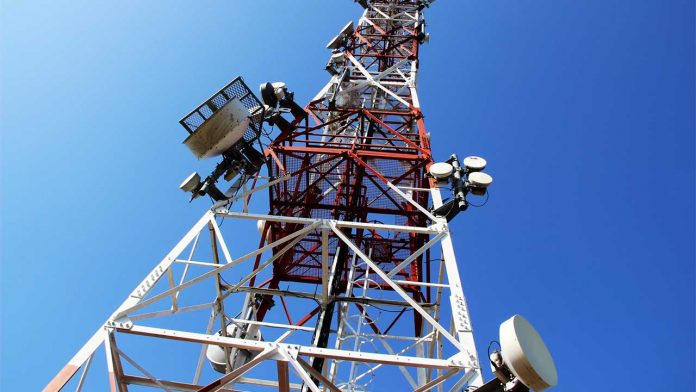Hike In Telecom Tariff Not An Option- FG Tells Telecom Operators
The Federal Government on Thursday disagreed with Mobile Network Operators’ (MNO) demand for an increase in telecommunications tariffs.
The Minister of Communications, Innovations and Digital Economy, Bosun Tijani, while speaking at the presentation of the Global System for Mobile Communications Association, GSMA-Nigeria Digital Economy Report and Preview/Round Table by stakeholders at the Transcorp Hotel, Abuja, said that a hike in tariffs is not an option and should not be the only solution to the challenges facing the telecom industry.
The minister said that the government was aware of the challenges facing the sector, and assured that it would address them step by step.
According to him, “I have noted all the challenges as articulated by all critical stakeholders. I have an appointment to see Mr President, and I will discuss the challenges with him. But a hike in telecom tariffs is not an option and should not be the only solution on the table.
“We appreciate the importance of this conversation, and we will continue with it so that we arrive at solutions that can drive the industry to the benefit of all.”
Speaking earlier, the Minister outlined steps taken so far by the present administration to deepen the growth and development of the digital economy sector, saying the telecom industry remains the backbone of not just the sector but all other sectors in the country.
He called on the Nigeria Bureau of Statistics to quickly undertake a rebase of the economy to determine the contributions of the digital economy sector to the Gross Domestic Product (GDP) of the country, saying the government is targeting about 22 percent contribution to the GDP.
He said that given the enormous resources in Nigeria and the size of its population, it had become imperative for the government to embark on diversification of the economy to enable the country to compete favourably in the digital space, as Nigeria cannot afford not to tap into digital technologies.
He expressed government commitment to improving infrastructure for the telecom industry, addressing multiple taxation, Right of Way (RoW), security of infrastructure, ensure improved quality of services, and close access gaps through increased broadband penetration.
Tijani said: “You’ve probably also seen, with the support of our partners worldwide, we’ve had sleepless nights, putting together the opportunity for us to accelerate investment in our fibre optic network, which is a major target for this administration.
“We believe that in the next two to three years we can indeed deliver on the 90,000 kilometres of fibre network that is required.
“We believe that if we can deliver it as a country, the sector in itself can become a provider of the same set of services across our region. Nigeria can power the fibre network in Niger, the Republic of Benin, and so many other countries in West Africa.
“And we believe with investment in fibre optic networks and telecommunications services, perhaps we can leapfrog from 2G to 5G, and so on.”
But the MNOs at the gathering, insisted that a hike in telecom tariffs is inevitable given the realities/outlooks of the present economy, the government maintained that the planned increase is not an option.
They maintained that unless the government desired the epileptic power supply situation in the energy sector to become the fate of the telecom industry, it would continue to block the hike on telecom tariff.
Representatives of the MNOs were the chairman of the Association of Licensed Telecommunications Operators of Nigeria, Gbenga Adebayo; the CEO of MTN Nigeria, Karl Toriola; the Executive Vice Chairperson of Globacom, Bella Disu, the CEO of 9Mobile, Juergen Peschel; and the CEO of Airtel Nigeria, Carl Cruz.
The CEO of MTN Nigeria, Toriola, urged the government to look critically at the economic indices in relation to inflation and wonder why the government would shy away from the facts and figures.
He said, “The truth of the matter is that you have to consider the cost of other services in relation to our ecosystems. The people in the beverage industry review their costs almost every month, the cost of diesel and alternative energy has skyrocketed, and even the prices of food items, including garri have gone up. So how do we operate in isolation?
“Tariff hike is an ecosystem issue that has to be addressed urgently if we are committed to attracting investments to the industry. As things are now, the outlook is not attractive or encouraging. You can go and verify the performances of the sector in the stock exchange market,” Toriola said.
In her remarks, the Executive Chairperson of Globacom, Bella Disu, emphasised the need for further conversations on the challenges facing the industry. She said the telecom sector has significantly contributed to the development of the economy and should not be bogged down by multiple challenges.
A recent report by the GSMA highlights the potential for significant growth in Nigeria’s
telecommunications sector by 15 million internet users in Nigeria by 2028 by implementing an improved policy environment with only 29 per cent of Nigerians regularly accessing mobile internet.
They noted, however, that the sector faces challenges such as the cumbersome process of securing Rights of Way (RoW) for infrastructure deployment and a complex tax environment, which impose high compliance costs on telecom companies.
They said, “To address these challenges and foster sustainable investment, the GSMA recommends initiatives such as establishing a legal framework for critical national infrastructure, streamlining the RoW issuance process, and reducing the industry’s tax burden. By creating a regulatory environment that supports growth and competition, Nigeria can harness the full potential of its mobile industry, driving economic development and digital inclusion for its citizens.”





